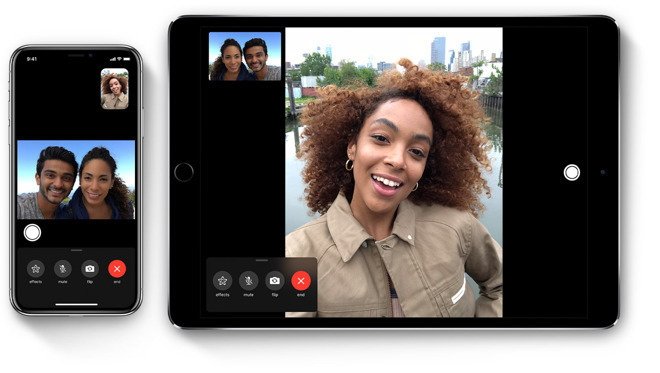The U.S. Supreme Court has decided it doesn't want to look into the patent battle between VirnetX and Apple, effectively ending VirnetX's chances of reviving a $503 million verdict.
In Apple's 14-year legal battle against VirnetX over alleged patent infringement by FaceTime, the iPhone maker was ruled to pay out $502.8 million in 2020, a verdict it managed to defeat in 2023. Almost one year later, VirnetX's last chance to keep its payout alive has bit the dust.
The decision on Tuesday by the U.S. Supreme Court was a refusal to hear the bid by VirnetX to revive the overturned jury verdict, reports CNBC. By declining the request, the 2023 decision by the U.S. Court of Appeals for the Federal Circuit still stands, meaning Apple doesn't have to pay out the $503 million.
It all but brings to an end the legal battle that started back in 2010, when VirnetX sued Apple over allegations of patent infringement related to FaceTime, VPN, and iMessage services.
By 2020, a federal jury ruled in favor of VirnetX's case, calculating the massive payout from Apple, shy of the $700 million it wanted, but more than Apple's preferred $113m payment.
In 2023, the U.S. Court of Appeals decided in favor of Apple, overturning the $503M ruling completely, and forcing VirnetX further up the judicial chain.
 Malcolm Owen
Malcolm Owen








 Marko Zivkovic
Marko Zivkovic
 Wesley Hilliard
Wesley Hilliard
 Amber Neely
Amber Neely


 William Gallagher
William Gallagher

 Christine McKee
Christine McKee




-m.jpg)



7 Comments
Does that mean Apple could finally bring FaceTime to other platforms as Steve promised? 🤣
https://9to5mac.com/2018/06/06/make-facetime-an-open-standard/
So, it's a common misunderstanding that when an appeal is made in the US courts it is the decision that is being appealed, but that is not the case. An appeal can only be made on the basis of an error in law. That is, the court of original jurisdiction made an error in how the law was applied (whether procedural or substantive) that materially affected the outcome of the case.
Consequently, VirnetX failed to gain Certiorari in its appeal to the US Supreme Court (USSC) of the Federal Circuit's decision because the USSC did not see either an error in law by the Circuit (i.e., it ruled for Apple appropriately), or any compelling points at law (VirnetX failed to prove there was any new law or legal theory) that required a decision/clarification for the guidance of US jurisprudence.
In Apple's case with VirnetX, the Circuit Court adjudged that VirnetX's patents were rightfully declared invalid by the USPTO Tribunal in a different hearing from the one it originally conducted in the case between Apple and VirnetX. Consequently, as a matter of law, Apple could not be made to pay for infringing on patents that were invalid, and plaintiff had no case.
Patent trolls lose again.
Thank you, Mortarman81mm, for that very cogent explanation of why the SC declined to hear the case.